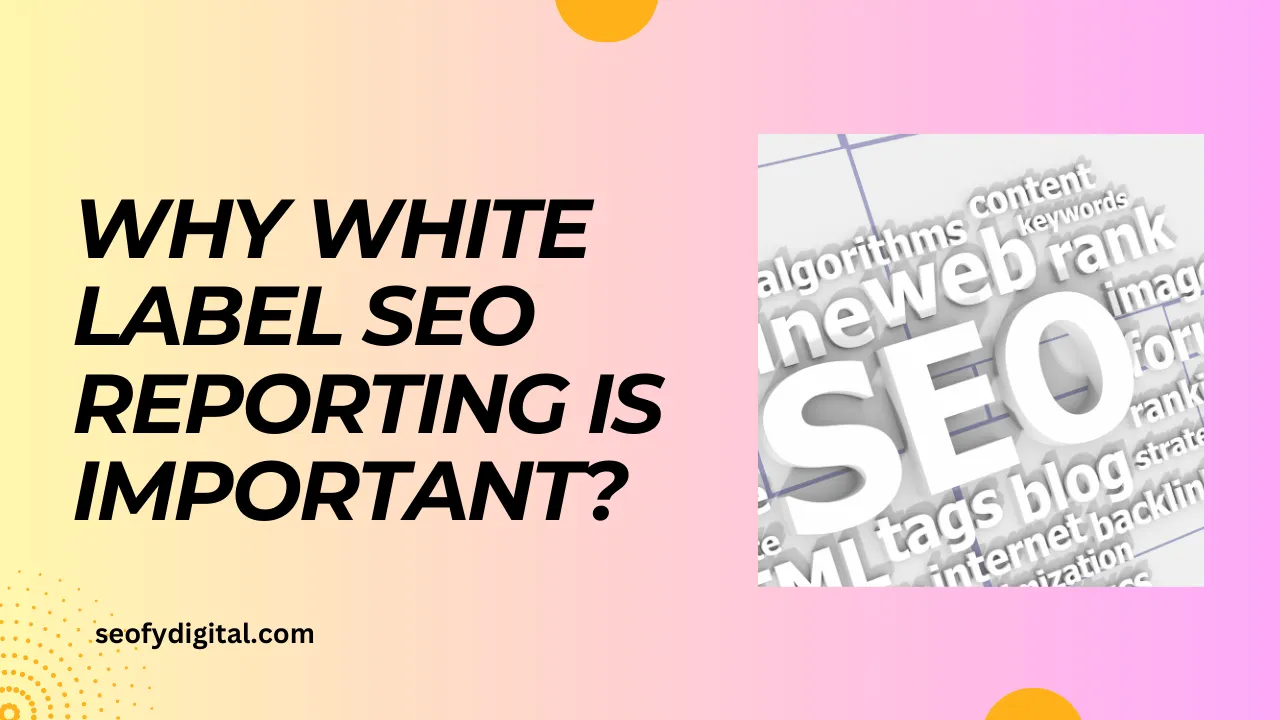In today’s competitive digital landscape, SEO has become a lifeline for businesses looking to improve their online presence. However, for agencies and marketing firms, consistently delivering effective SEO results and communicating those achievements can be a daunting task.
Here is where white-label SEO reporting plays a crucial role, offering a way to present detailed SEO data under a unique brand, simplifying the process for both agencies and their clients.White-label SEO reporting isn’t just a convenience; it’s an essential tool for agencies that want to streamline operations, build credibility, and foster long-term client relationships.
By seamlessly blending into the agency’s brand, it enables agencies to provide professional, accurate reports without investing excessive time and resources into creating them from scratch. For clients, white-label reporting offers transparency and tailored insights that build trust.
With the rapidly evolving digital world, white-label SEO reporting provides business insights that are actionable and easy to understand. Let’s dive deeper into why these reports matter, their core benefits, and how they shape the future of SEO strategy.

Contents
- 1 The Benefits of White-Label SEO Reporting for Agencies
- 2 Key Components of Effective White-Label SEO Reports
- 3 Best Practices for Creating Engaging White-Label SEO Reports
- 4 The Future of White-Label SEO Reporting
- 5 Conclusion
- 6 FAQs
- 6.1 1. What is white-label SEO reporting?
- 6.2 2. Why is white-label reporting essential for SEO agencies?
- 6.3 3. What are the key benefits of white-label SEO reports?
- 6.4 4. Can white-label SEO reports improve client satisfaction?
- 6.5 5. How does white-label SEO reporting impact efficiency?
- 6.6 6. What metrics should be included in a white-label SEO report?
The Benefits of White-Label SEO Reporting for Agencies
Streamlined Operations:
White-label SEO reporting helps agencies save time with automated data collection and standardized templates, which make generating reports more efficient. By reducing manual tasks, agencies can focus on high-level strategy rather than getting bogged down by repetitive work.
Enhanced Client Relationships:
Clients appreciate professional, polished reports that showcase the agency’s commitment to their business. White-label reports allow for transparent communication, fostering trust and helping clients feel involved in their digital success story.
Improved Client Retention:
White-label reporting creates long-term partnerships as clients see consistent value and insight. A clear understanding of SEO performance often leads to greater satisfaction and reduces churn, contributing to a stable, loyal client base.
Key Components of Effective White-Label SEO Reports
Executive Summary:
A concise overview of key insights at the beginning of each report provides clients with a snapshot of critical data points and suggested next steps, keeping them engaged right from the start.
Performance Metrics:
Metrics like organic traffic, keyword rankings, and conversions help measure the impact of SEO strategies. Showing progress in numbers makes it easy for clients to grasp their ROI.
Technical SEO:
Highlighting website speed, mobile optimization, and XML sitemaps helps clients understand the importance of technical aspects and how they contribute to the site’s performance.
On-Page and Off-Page SEO:
From meta descriptions to backlink profiles, these sections give a full view of the SEO landscape, showing clients both the visible and behind-the-scenes work that strengthens their online presence.
Competitor Analysis:
This section allows agencies to demonstrate industry benchmarking, illustrating where the client stands compared to competitors and identifying growth opportunities.

Best Practices for Creating Engaging White-Label SEO Reports
Clear and Concise Language:
Avoiding jargon and technical terms can make reports accessible to clients without SEO knowledge. Simplicity in language ensures that reports are understood, no matter the client’s expertise level.
Visual Appeal:
Charts, graphs, and infographics break down complex data visually and make the report more engaging. A visually appealing report captures attention and can effectively highlight significant insights.
Storytelling:
Creating a narrative around the data helps clients understand the story of their progress. Instead of just numbers, a report that explains the journey and achievements is more compelling.
Actionable Insights:
Including clear, specific recommendations allows clients to see what steps are next, demonstrating proactive problem-solving that adds value.
Customization:
Each client’s needs differ. Tailoring reports to highlight what matters most to each client reinforces the agency’s understanding of their unique goals and challenges.
The Future of White-Label SEO Reporting
AI and Automation:
The integration of AI promises increased efficiency with predictive analytics that enable real-time adjustments, making reports smarter and more insightful.
Data-Driven Decision Making:
Agencies can leverage white-label reporting to drive strategic decision-making based on concrete data, aligning efforts with business goals and measuring success with precision.
Collaboration and Transparency:
The future will likely see more interactive reporting tools, fostering stronger client relationships through shared knowledge and transparent results.
Conclusion
White-label SEO reporting is a game-changer for digital agencies, enabling them to present branded, data-driven insights that build trust and drive success. By making complex SEO data accessible, these reports empower clients to see the value of ongoing SEO work, which strengthens agency-client partnerships and supports data-informed decision-making.
Ready to see the impact? Integrating white-label SEO reporting into your agency’s workflow can elevate your service, streamline operations, and drive client satisfaction, positioning your agency as a reliable digital partner in an ever-competitive landscape.
FAQs
1. What is white-label SEO reporting?
It’s branded SEO reporting that allows agencies to present data as their own, simplifying reporting for agencies and enhancing professionalism.
2. Why is white-label reporting essential for SEO agencies?
It offers time savings, brand alignment, and improved client relations, making agencies more efficient and effective.
3. What are the key benefits of white-label SEO reports?
Streamlined operations, enhanced relationships, and higher retention rates are major benefits.
4. Can white-label SEO reports improve client satisfaction?
Yes, polished and customized reports show commitment and make results transparent, which fosters trust.
5. How does white-label SEO reporting impact efficiency?
With automated templates and data collection, it reduces time spent on report generation.
6. What metrics should be included in a white-label SEO report?
Key metrics include organic traffic, keyword rankings, backlink profiles, and conversion rates.








